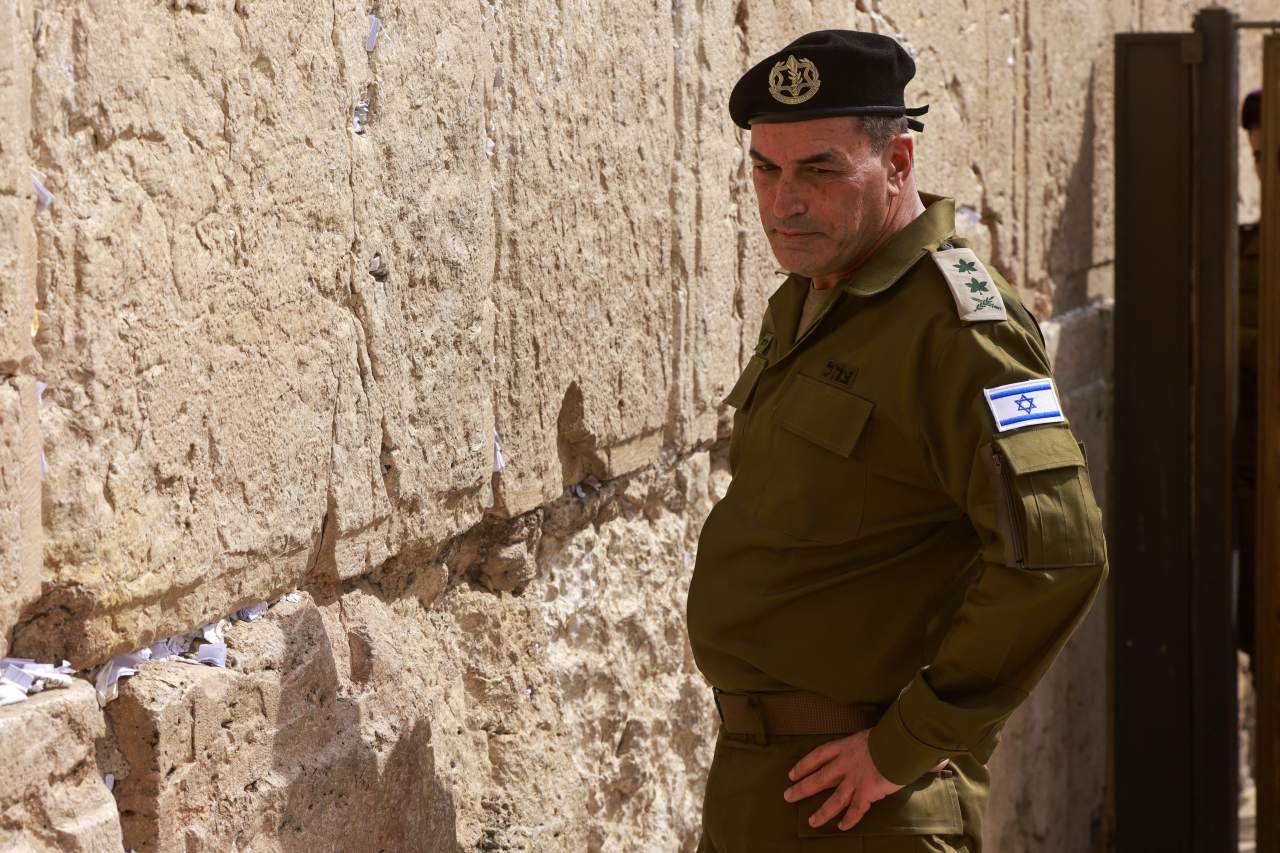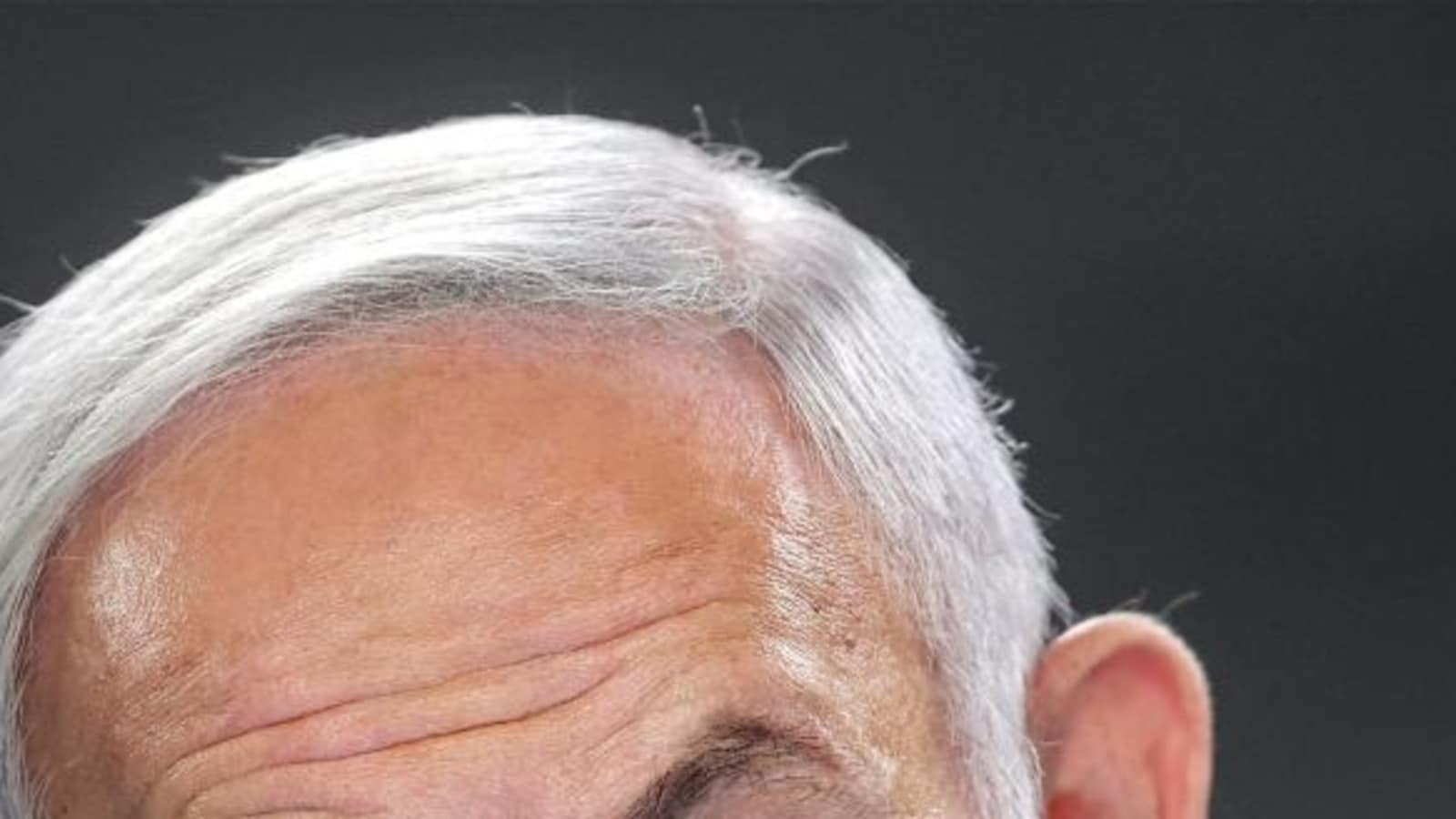Top Israeli security officials and ministers are privately urging Prime Minister Benjamin Netanyahu to do a temporary cease-fire deal with Hamas rather than expand a ground offensive against the militant group in Gaza City, according to Israeli officials.
 PREMIUM Israeli Prime Minister Benjamin Netanyahu says he wants to hand control of Gaza to a third party, but he hasn’t said who that will be.
PREMIUM Israeli Prime Minister Benjamin Netanyahu says he wants to hand control of Gaza to a third party, but he hasn’t said who that will be.
In a fiery six-hour security cabinet meeting Sunday night, Israeli military chief Eyal Zamir warned Netanyahu and other senior ministers present that the operation could lead to Israeli military rule over Gaza, some of the officials said.
Mossad spy agency chief David Barnea and Foreign Minister Gideon Sa’ar have also expressed hesitation in recent weeks about proceeding with the Gaza City offensive, Israeli officials said. They, along with Zamir, have argued for pursuing a cease-fire deal with Hamas that would release at least some of the remaining Israeli hostages in Gaza, officials said.
The dispute reflects a divide between Netanyahu and some in the country’s security establishment over the goals of the war, its execution and the future of Gaza. He has clashed repeatedly with generals and security chiefs who have been frustrated with what they see as his inability to chart a clear endgame for the war. The rift is spilling into the public view again as Netanyahu has decided to press ahead with the Gaza City offensive as domestic opposition to continuing the war is growing, along with international condemnation.
Israeli military chief Eyal Zamir opposes a full occupation of Gaza.
One of the biggest concerns raised by Zamir is the potential legal responsibilities Israel would have if it were to remove the last vestiges of Hamas rule in Gaza. Legal experts inside and outside of Israel say Israel risks becoming legally responsible for providing basic services in the enclave, including healthcare, education and sanitary services. Services are now supplied by aid groups or local government officials. A military government could cost Israel around $10 billion annually, according to some estimates.
There are a host of other concerns. Sa’ar is worried about the diplomatic cost of continuing the war as international criticism over the rising civilian toll grows, officials familiar with his thinking said. He has said Israel should rescue as many hostages as possible now, the officials said.
The Gaza City offensive is seen as risky for the remaining Israeli hostages and Israeli soldiers. Zamir opposed a full occupation of Gaza in the security cabinet meeting in part because of manpower shortages due to the exhaustion of reservists after repeatedly being called up for duty for almost two years.
“There is clear disagreement about the need to go for an operation that will have very heavy costs and at the end won’t bring back the hostages,” said Israel Ziv, a former commander of the Israeli military’s Gaza division.
In a speech in late August, Zamir said that Israel’s military had created the conditions for the release of all the hostages, suggesting that the military had already done its part by laying the groundwork for a deal.
Hamas on Wednesday reiterated its support for a cease-fire that would free some of the hostages and begin talks on an end to the war, as well as its readiness to accept a comprehensive deal to release all the hostages in exchange for a permanent cease-fire and Israel’s withdrawal from Gaza. Netanyahu’s office dismissed the statement as “more spin” with “nothing new in it.”
Despite the military’s hesitancy about the operation, it is moving ahead with preparations for the offensive. Israeli forces are operating in several neighborhoods in the outskirts of Gaza City, where hundreds of thousands of Gazans live and where some Israeli hostages are believed to be held, and mobilizing tens of thousands of reservists for the broader fight.
Netanyahu has called Gaza City a Hamas bastion and says the operation is necessary to defeat the militant group. His government has said it isn’t interested in a limited cease-fire and will stop the war only if Hamas surrenders, returns all its hostages, disarms, and gives up power in Gaza to a civilian administration while Israel maintains security control.
Hamas hasn’t agreed to those steps. Arab mediators and many Israeli hostage families say those terms are unrealistic and are sabotaging a deal.
Those who support a partial deal in the security establishment argue that there is a chance to save the lives of hostages now, and they can always renew the fight against Hamas later.
Netanyahu says he wants to hand control of Gaza to a third party, but he hasn’t said who that will be. He has accused Hamas of negotiating in bad faith, and Hamas has made the same accusation about him.
Hamas said last month that it would accept a 60-day cease-fire deal that had been on the table. According to the proposal, Hamas would hand over 10 living hostages in exchange for Palestinian prisoners. Negotiations for a lasting truce would begin on the first day of the cease-fire. Israel hasn’t sent back a clear response to mediators about the proposal, and negotiations are currently at a stalemate.
Throughout the war, Netanyahu has repeatedly clashed with generals and security chiefs who have been frustrated with his lack of planning for a postwar Gaza and his insistence on military solutions they found unworkable. The question of whether Israel should restore its military government in Gaza after dissolving it in 2005 has been debated by some government officials throughout the war.
Previous disagreements between Netanyahu and his security chiefs have led to some being ousted. The former defense minister was fired after warning publicly that the government was leading Israel into a full occupation of Gaza. The former head of Shin Bet, who accused Netanyahu of slow walking cease-fire negotiations, was also fired.
Netanyahu’s critics have accused him of prolonging the war for his political survival, which he denies. His ruling coalition relies on the support of far-right ministers who oppose ending the war and advocate for rebuilding Jewish settlements in the enclave.
Write to Anat Peled at anat.peled@wsj.com and Dov Lieber at dov.lieber@wsj.com
 Israeli Security Officials Raise Concerns About Gaza City Offensive
Israeli Security Officials Raise Concerns About Gaza City Offensive

